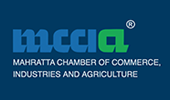The Indian Forging Industry
Forging is considered a key integral part of the manufacturing industry, supporting vital sectors such as automotive, heavy industrial machinery, power, construction and mining equipment, railways, and engineering in general.
Furthermore the government's thrust on the manufacturing sector with initiatives like "Make in India" and "Skill India" created positive economic trends in the sector with many global OEMs and Tier-I players looking to procure high standard quality products.
With increasing inflation rates, oil prices, and economic fluctuations happening, how is it impacting the forging industry?
The Current Economic Climate
The current economic condition of the world is seemingly looking like that of a recession, with countries such as the US, UK, and Europe experiencing high inflation, i.e., the cost of goods and services have increased drastically. This is stemming from multiple factors, such as the Russia-Ukraine war, which is impacting crude oil prices and thereby making the cost of energy very high. Similarly, the amount of oil required for transport and logistics has also increased, thereby increasing the cost of goods across the board.
Inflation affects all industries, and countries are attempting to reduce inflation by enacting monetary policies by various governments, such as the RBI of India and the Fed rates in the United States, by increasing the base interest rates by many points to draw liquidity from the economy.
These measures will allow companies to breathe easier and reduce their costs, which are currently being passed on to customers and impacting the supply chain.
Scenario for the Forging Industry
These problems are affecting all industries, but especially the forging industry, which acts as an ancillary industry to other sectors. This can be seen specifically in the automobile industry, which recorded a Q3 growth of 18.3% YoY closing FY 2023 on the basis of strong car sales.
This is great news for the forging industry, which primarily serves the automobile industry, accounting for almost 70-80% of forging production, but with the movement to EVs, this growth may be hampered on the basis of underutilised capacity, which will eliminate nearly 60% of the forging and casting industries.
How does IQS fit into all this?
IQS has taken these factors into account, being a single source supplier of non-ferrous forging and casting products to the UK for the past 22 years.
Knowing how to manage prices while maintaining product quality during economic downturns is never easy, but IQS has invested heavily in its world-class manufacturing capabilities and delivers on just that.
Further to dealing with inflation, IQS has expanded into non-automotive sectors as well, such as infrastructure, healthcare, aerospace, agriculture, and many more, where the current government is also investing heavily. This diversification of products and services enables IQS to defend against inflation and make sure its customers remain happy and satisfied.
For information regarding IQS products and services, head to our website: https://www.iqsengg.com/
or
Subscribe to IQS Newsletters for markets, industrial, forging, casting, and more, right in your mailbox.













